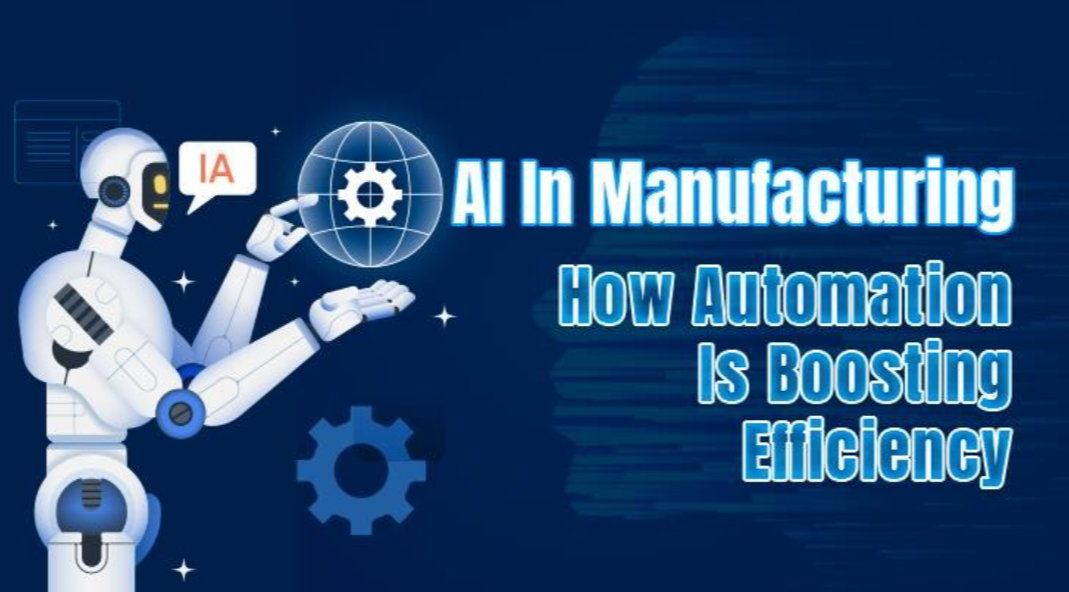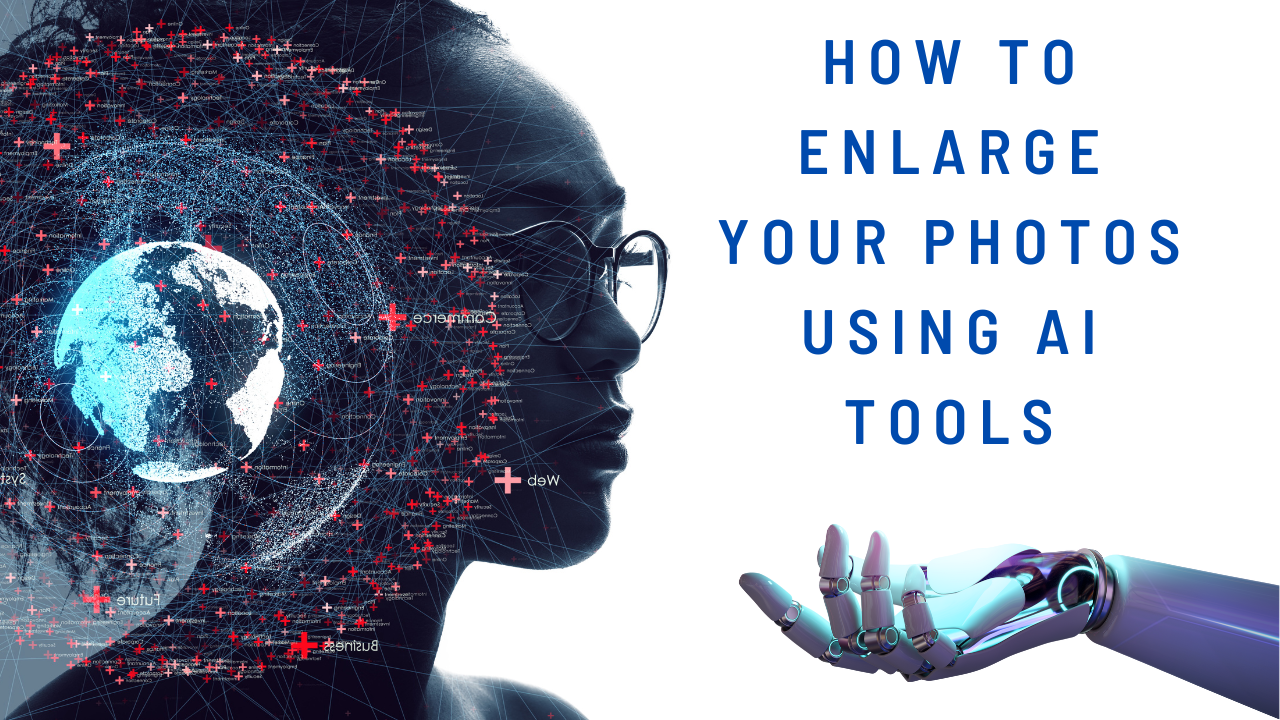In recent years, Artificial Intelligence (AI) has become a transformative force across industries, with manufacturing being one of the primary sectors benefiting from its advancements. The integration of AI-powered automation in manufacturing is revolutionizing the way companies produce goods, enabling them to enhance efficiency, reduce operational costs, and maintain high-quality standards.
In this blog, we will explore how AI-driven automation is reshaping the manufacturing landscape and the specific ways it is boosting efficiency.
1. Streamlining Production Processes
AI allows manufacturers to automate and optimize complex production workflows, leading to greater efficiency in assembly lines. Traditional manufacturing processes often require manual intervention and suffer from bottlenecks, especially when dealing with intricate or large-scale production tasks. AI-powered automation systems analyze data in real time, helping to identify inefficiencies and streamline operations.
For instance, predictive maintenance algorithms powered by AI can anticipate equipment failures before they happen, allowing for timely repairs. This minimizes downtime, increases productivity, and extends the lifespan of machinery. By using sensors and machine learning algorithms, manufacturers can keep their machines running optimally, ensuring a smoother and more efficient production process.
2. Reducing Human Error
Even in highly skilled environments, human error is inevitable. Mistakes can lead to delays, wasted materials, and costly reworks. AI systems, however, are capable of operating with precision, performing repetitive and delicate tasks with consistent accuracy. This not only reduces errors but also allows human workers to focus on higher-level tasks that require creative thinking and problem-solving.
For example, robotic process automation (RPA) can handle tasks like assembling products, inspecting parts, and even packaging finished goods. These robots work tirelessly without fatigue, ensuring consistent quality and output, reducing the risk of defects and increasing overall operational efficiency.
3. Enhanced Quality Control
AI technology is revolutionizing quality control in manufacturing. Traditional quality control methods often involve visual inspections by human operators, which can be time-consuming and prone to inconsistencies. AI, on the other hand, uses computer vision and machine learning algorithms to inspect products with remarkable speed and accuracy.
AI-driven cameras and sensors can detect minute defects in real-time, identifying inconsistencies that human inspectors might miss. This means that defective products can be caught early in the production process, reducing waste and ensuring that only top-quality items reach the market. Over time, AI systems learn from the data they collect, continuously improving their accuracy and effectiveness in quality assurance.
4. Optimizing Supply Chain Management
AI is also transforming how manufacturers manage their supply chains. Traditional supply chain management relies heavily on historical data and manual forecasting, which can lead to inaccuracies and inefficiencies. AI-driven systems, however, use real-time data analysis and predictive analytics to optimize inventory levels, forecast demand, and reduce delivery times.
For instance, AI algorithms can predict shifts in customer demand based on patterns in market data, allowing manufacturers to adjust production schedules accordingly. Additionally, AI can monitor the entire supply chain for potential disruptions, such as delays in raw material shipments or changes in supplier availability. By anticipating and responding to these changes in real time, manufacturers can keep their operations running smoothly, reducing costs and improving delivery times.
5. Personalizing Production through Mass Customization
With the rise of consumer demand for personalized products, manufacturers are increasingly turning to mass customization to meet these needs. AI enables manufacturers to produce personalized products on a large scale, maintaining efficiency while offering tailored goods to consumers.
AI systems analyze consumer preferences and automatically adjust production processes to accommodate individual specifications. This could involve modifying the design, materials, or assembly methods for a product without interrupting the overall workflow. With AI’s ability to manage these complex, individualized requests, manufacturers can deliver custom products quickly and cost-effectively.
6. Energy Efficiency and Sustainability
AI is also playing a crucial role in helping manufacturers achieve greater energy efficiency and meet sustainability goals. AI systems can analyze energy usage patterns within production facilities and make real-time adjustments to reduce waste. For example, AI can regulate the energy consumption of machinery, ensuring that equipment only operates when necessary.
In addition, AI can help manufacturers track their carbon footprint and identify areas where emissions can be reduced. By optimizing energy consumption, AI not only helps manufacturers save costs but also reduces their environmental impact, contributing to a more sustainable manufacturing future.
7. Smart Factories and the Industrial Internet of Things (IIoT)
The rise of smart factories and the Industrial Internet of Things (IIoT) is further advancing AI's role in manufacturing. In smart factories, AI systems connect machines, devices, and sensors to create a fully integrated and autonomous production environment. These factories use AI to monitor, control, and optimize every aspect of the production process in real-time.
By leveraging IIoT, manufacturers gain access to a wealth of data from connected machines. AI analyzes this data to provide insights that drive continuous improvements, such as predicting maintenance needs, adjusting production schedules, and optimizing resource allocation. The result is a more agile, efficient, and responsive manufacturing process.
Conclusion
AI is transforming the manufacturing industry by boosting efficiency, improving product quality, and reducing operational costs. From streamlining production processes to enhancing quality control and optimizing supply chains, AI-driven automation is unlocking new levels of productivity and innovation. As manufacturers continue to adopt AI technologies, we can expect to see even more advancements in the coming years, making production smarter, faster, and more sustainable.
For manufacturers seeking to stay competitive in an increasingly digital world, embracing AI is no longer an option—it’s a necessity. By harnessing the power of AI, manufacturers can not only improve efficiency but also adapt to the ever-evolving demands of the modern market.

















Post Comments